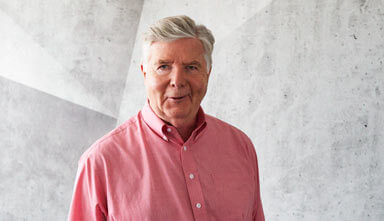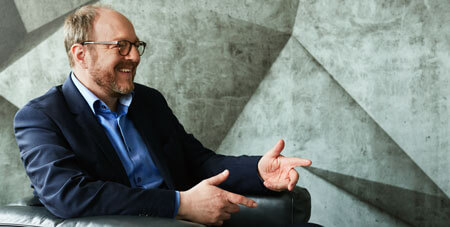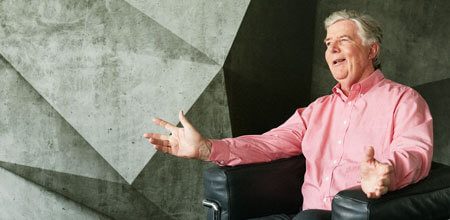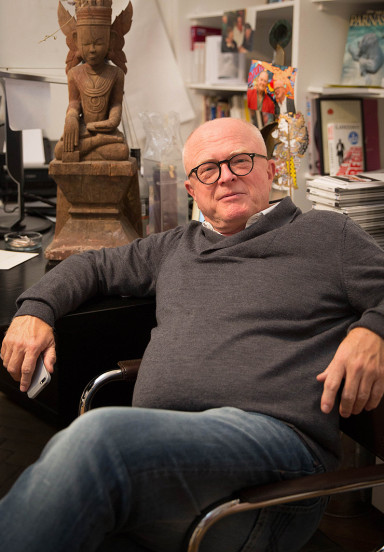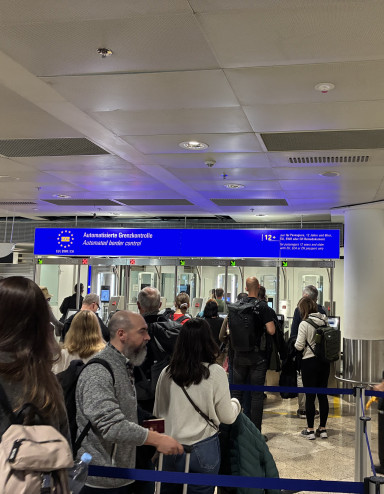Kobel's Art Weekly 23 2025
Artnet, the most well-known art market portal, is being acquired by a British investor, according tomy news for Artmagazine. Going a step further than the buyer himself, former major shareholder Rüdiger K. Weng provides information about the possible future of Artnet and Artsy in an article by Georgina Adam for The Art Newspaper: ‘Weng said that Wolff would be combining Artnet and Artsy and might acquire more; “In order to monetise these companies, you need a bigger structure,” he says.’ Daniel Cassady reflects the positive reaction of Artnet's management in Artnews: "In Tuesday's announcement, both Artnet's board of directors and supervisory board stated that they support the move and that the company will benefit from a “more stable, private environment” and a long-term shareholder structure that frees it from public market control. The offer is not dependent on external financing. The deal also signals Beowolff's growing ambitions in the art tech sector. Earlier this year, the firm acquired a controlling interest in Artsy, the online art marketplace.‘ ’In Tuesday's announcement, Artnet's management and supervisory boards both said they supported the move, and that the company would benefit from “a more stable, private environment” and a long-term shareholder structure that frees it from public market scrutiny. The offer is not contingent on external financing. The deal also signals Beowolff's growing ambition in the art-tech sector. Earlier this year, the firm acquired a controlling interest in Artsy, the online art marketplace." Artnet shows a special sense of humour by putting the news of Naomi Rea's sale behind a paywall. I comment on the process for Monopol.
Arun Kakar reported for Artsy that Gallery Weekend in Beijing was unimpressed by the multiple global crises: "One might have expected such discussions to cloud the conversations at Gallery Weekend Beijing, but at the ninth edition of the event (held from 23 May to 1 June), the outlook among collectors and dealers was tentatively optimistic and even defiant. The art scene here is crafting its own narrative: The shows on view and artistic discoveries highlight vibrancy and experimentation, and there is plenty for art lovers to be excited about. ‘The general vibe is quite good despite the economic uncertainties,’ Hong Kong-based collector KK Chan told Artsy. ‘Gallery Weekend is much busier this year than last year.’
Katya Kazakina explains the weak Old Masters auctions in New York and the lessons to be learned from them for Artnet (paywall may apply): "So, what does it say about the market when buyers get cold feet on such top-quality material? I've heard explanations that include pneumonia sending a key auction expert to the hospital and the unfavourable, off-season calendar slot. All this may be true. But there's more. The Saunders Collection challenges a popular narrative that the market's decline since mid-2022 is a supply story. If the material is there, we've been told by dealers and auction executives, bidders will come. This month revealed that they don't show up just because the material is there. Perhaps the market blues are more serious. Perhaps it's also a demand story. Which is why it is important to consider last week's Old Masters results, even though this market is a different beast from the much bigger Modern and contemporary markets. Here are four takeaways."
Ursula Scheer sees signs of hope when she looks at the auction catalogues of Grisebach in Berlin for the FAZ: ‘Grisebach is offering a total of 500 works in five auctions with a lower total estimate of around 20 million euros. This is a positive sign for the auction house: in 2024, the total lower estimates for roughly the same number of lots amounted to only 12 million euros.’ Brita Sachs also describes Ketterer's offering in Munich for the FAZ, without mentioning that the offer is significantly weaker than in the previous anniversary year. We eagerly await the follow-up reports on the surprisingly weak evening auction at Lepmpertz in Cologne last weekend.
Some market participants are hoping that virtual reality will revive business, explains Adam Schrader in The Art Newspaper (paywall possible): "Hal Bromm, who is celebrating 50 years at his New York gallery, believes the technology could help revive declining gallery visits. While opening receptions with artists still attract crowds, traffic has dropped significantly since the 1970s, he says. ‘People go to art fairs the way they used to go to galleries,’ he adds. ‘But using virtual reality (VR) for client interaction—there could be tremendous potential there.’ Bromm sees promise in using AR and VR for virtual studio visits and previewing works in situ. Apple's Vision Pro headset includes avatars that mirror users' expressions in real time." However, technological upgrades are unlikely to have much impact on the fundamental problem behind the crisis in the art market.
George Nelson explains the increasingly complex issues involved in the valuation and authentication of artworks in Artnews: ‘But art appraisers and authenticators are increasingly inserting “caveats” into their appraisals or hedging authentication reports as “conditional,” seemingly to skirt the legal liability that certainty might incur. In speaking with relevant experts about two recent cases, it became clear that while appraisal and authentication have always been sticky issues, this line of work may be growing more complex.’
Regine Müller reports on the presentation of the German Culture Prize in Düsseldorf in the Handelsblatt: "There is hardly a better opportunity to engage in cultural dialogue with business people and entrepreneurs than at the German Culture Prize award ceremony, which has been honouring outstanding cultural projects by companies in cooperation with Handelsblatt and ZDF since 2006. The numerous applications shed light on the multitude of initiatives, most of which operate quietly in the background, that like to work at the interface between culture and social engagement – precisely where the state often has little to offer."
After buying his way out of a fraud case by making a deposit into Trump's crypto money printing machine, the banana man is now going one better, according to a report by Brian Boucher for Artnet: ‘Crypto entrepreneur Justin Sun made a splash there on Thursday, presenting Maurizio Cattelan's artwork Comedian (2019) to the notorious Silk Road founder Ross Ulbricht, who is just a few months out of maximum-security prison, where he was to spend the rest of his life until he was pardoned by Donald Trump.’ What is currently happening in the United States would be too absurd even as the plot for a Blake Edwards film about bananas.
The scandal surrounding fake furniture, which has been going on for ten years, is finally coming to a legal end, reports Bettina Wohlfarth for the FAZ from Paris on 31 May: "Bill Pallot and Bruno Desnoues sat in the dock, who – not without a little pride in their achievement. Among the intermediaries, only the Kraemer gallery remained under indictment for “culpable negligence”. In fact, Kraemer is said to have charged Versailles 840,000 euros for the fake Madame du Barry chairs, while, as reported by “Le Monde”, he acquired them for significantly less, namely 200,000 euros. […] The gallery has compensated its customers and considers itself to have been just as skilfully deceived as the other victims of the counterfeiting duo. Bill Pallot faces three years in prison and a payment of 300,000 euros in compensation. Bruno Desnoues could get off with two years in prison and a fine of 100,000 euros. Laurent Kraemer and his gallery are facing a one-year suspended sentence and a fine of 780,000 euros. The verdict is expected to be announced on 11 June."
Just under two years after the sale of Expo Chicago to Frieze, its founder and director Tony Karman is stepping down, reports Maximilíano Durón in Artnews.
Almost all Austrian media outlets are mourning the death of Viennese gallery owner Ernst Hilger. Werner Remm, whose artmagazine had long supported Hilger as a partner, writes: ‘Ernst Hilger was one of the friendliest and most open personalities in the Viennese art scene. He was always willing to mediate between disputing parties and strive for consensus in order to advance collaborative projects.’ In Die Presse (paywall, boo!), Eva Komarek recalls: ‘When Ernst Hilger entered a room, you immediately felt his energy, not dominant but infectious, full of curiosity, drive and a thirst for the unknown.’ Michel Huber also pays tribute to the deceased in the Kurier: "It is difficult to overestimate how much groundwork and development work Hilger did for the art scene in Vienna, but also in Austria and beyond, over decades. Long before the goal of making art accessible – and also affordable – became the mantra of museums and art fairs, Hilger was already doing the work that turned countless people into art lovers and many of them into art collectors."
